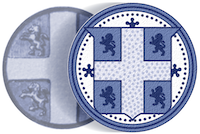Sir William Allan
Submitted by Steve Thompson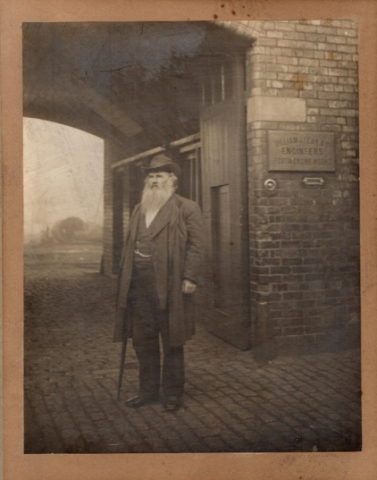
Sir William Allan was an interesting character, his London Times Obituary, dated the 29th December 1903, documents a remarkably interesting life.
He was born on the 22nd November 1837, in Dundee, Scotland. His father, James, owned an engineering business when William was born. Unfortunately, his father’s business failed, and William was forced, at ten years old, to start an engineering apprenticeship. Not much is known about him until 1861, where records show that he emigrated to New York, becoming a Chief Engineer on a ship that was engaged in breaking the American Civil War blockade. His paddle steamer was captured, he was taken as a prisoner of war and confined in a Washington prison for six weeks. His release was secured by the intervention of the British Ambassador, on condition that he left the country and did not take any future part in the war.
William, who for the most part of his life worked in boiler engineering, found work in Carlisle, then moved to the North-Eastern Marine Engine Works in Sunderland. In 1887 he left and started the Scotia Engine Works, Scotia Quay, Sunderland. His business quickly flourished, eventually employing around one thousand men.
By his own admission, he was not a well-educated engineer. All he knew was self-taught, yet his engineering instinct placed him at the forefront of marine boiler and engine design and manufacture. He patented various improvements; his most successful was placing the steam condenser under the engine and driving the pumps directly off the cross heads. This invention became popular in cargo steamers.
As an employer, he introduced the concept of laying-off his men during difficult times; unheard of then, but quickly became widely adopted. Sir William was a Radical, but, unlike many so-called Radicals, he had the working man at heart, being the first to introduce an eight-hour working day.
Being the proprietor of a successful business allowed him the opportunity to serve his community as a Justice of the Peace, and focus on his political ambitions, culminating in him winning the 1893 by-election and becoming a Member of Parliament for Gateshead, serving until his death.
Besides his business and political activities, Sir William wrote a great deal of verse and poetry, publishing several books which brought him to the attention of Queen Victoria. He was knighted in the 1902 Coronation Honours, receiving the accolade from King Edward VII at Buckingham Palace on the 24th October that year.
He died suddenly at his residence, Scotland House in Mowbray road, Sunderland, on 28th December 1903 after suffering for some time with heart disease.
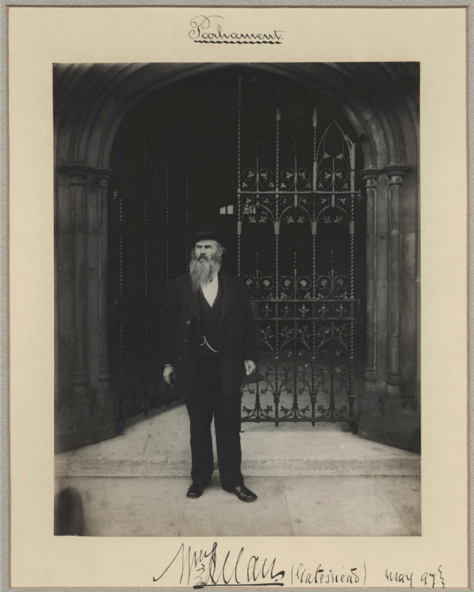
A platinum print of Sir William outside the Houses of Parliament, May 1897
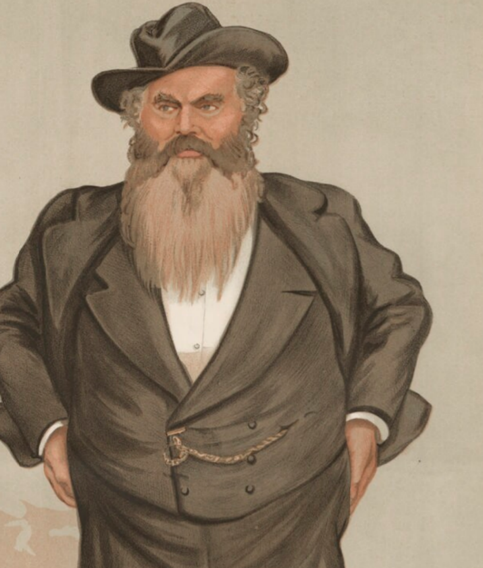
A sketch of Sir William, published in Vanity Fair, 26th October 1893
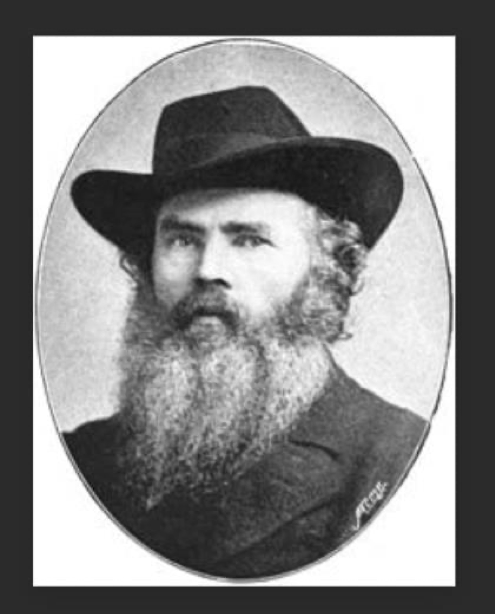
A further portrait of Sir William
When the Wearside Masonic Temple, Burdon Road, opened, 24th August 1932, Sir William Allan’s sons donated three pieces of furniture, an old oak chair, a dining table and sideboard used by Sir William. The oak for the furniture was taken from the slipway of an old shipyard on the River Wear, probably Samuel Peter Austin’s as he was a Palatine brother at that time.
For many years the furniture graced the Temple’s Boardroom until they were removed to allow redevelopment of the lower floor. However, the old oak chair remains on the second floor of the Temple.
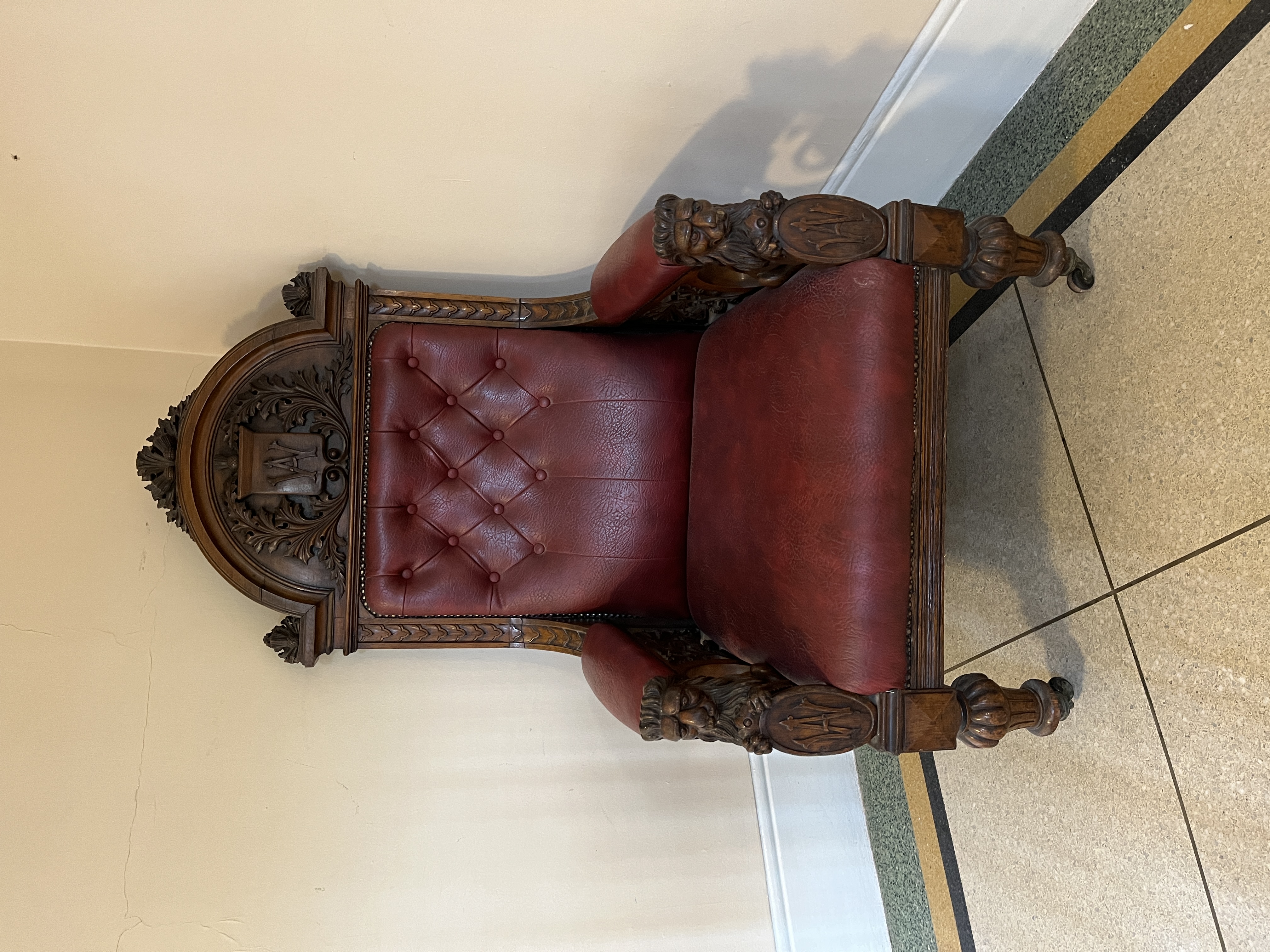
The chair in-situ
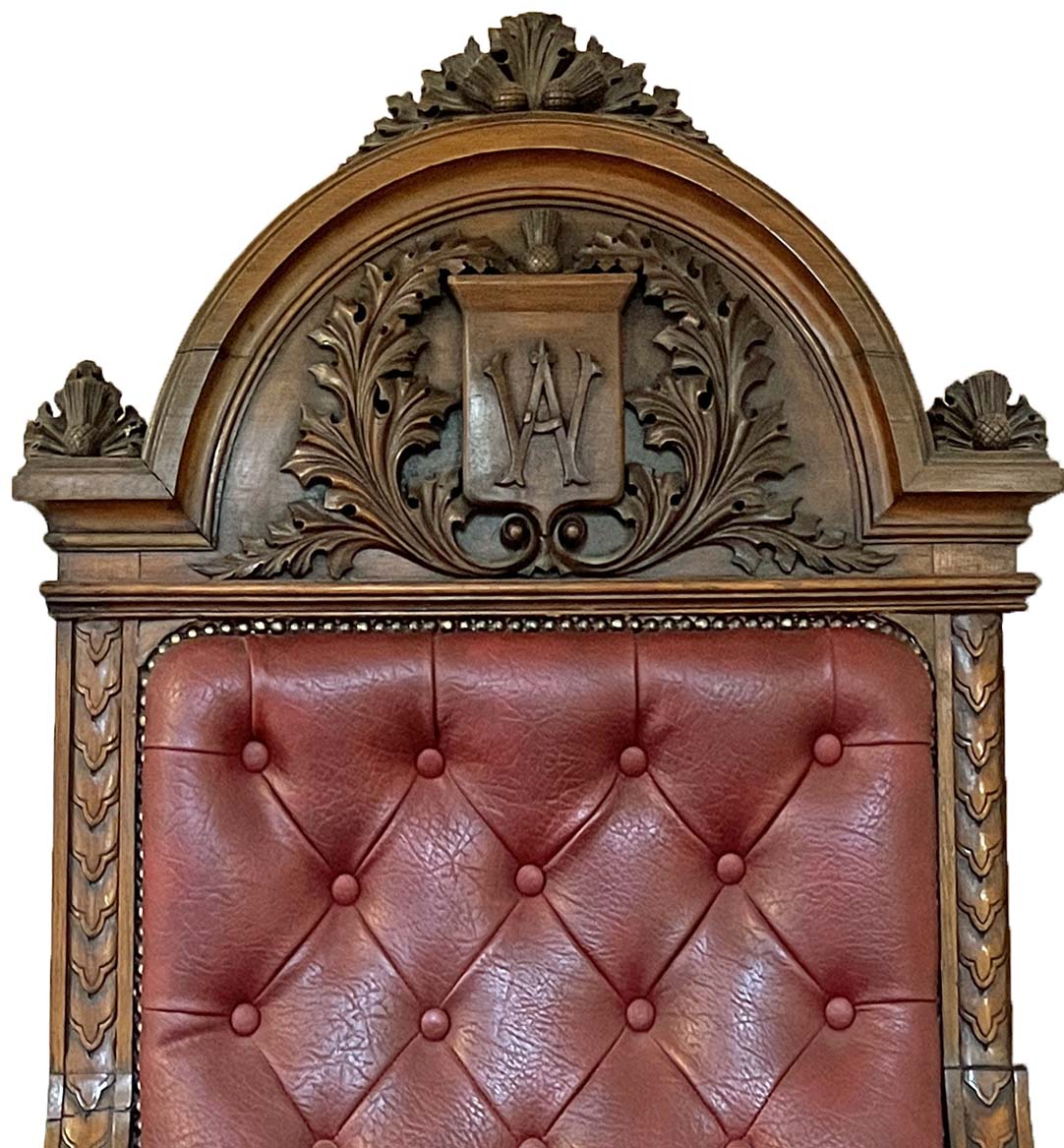
Chair detail
